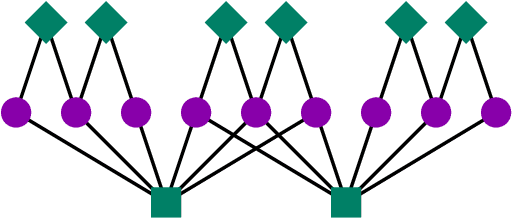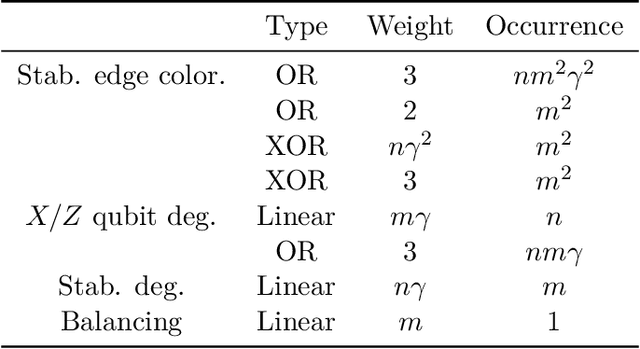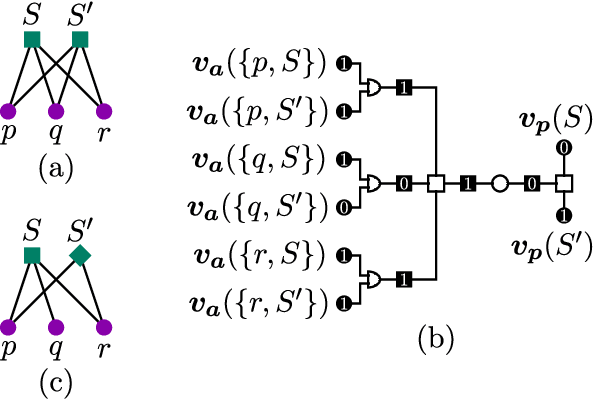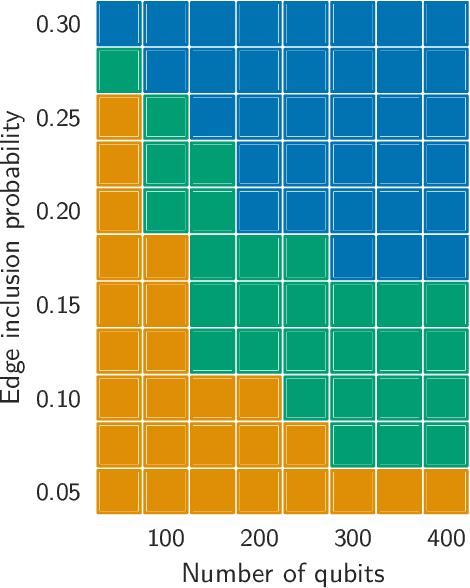Guillaume Duclos-Cianci
Finite-rate sparse quantum codes aplenty
Jul 18, 2022



Abstract:We introduce a methodology for generating random multi-qubit stabilizer codes based on solving a constraint satisfaction problem (CSP) on random bipartite graphs. This framework allows us to enforce stabilizer commutation, X/Z balancing, finite rate, sparsity, and maximum-degree constraints simultaneously in a CSP that we can then solve numerically. Using a state-of-the-art CSP solver, we obtain convincing evidence for the existence of a satisfiability threshold. Furthermore, the extent of the satisfiable phase increases with the number of qubits. In that phase, finding sparse codes becomes an easy problem. Moreover, we observe that the sparse codes found in the satisfiable phase practically achieve the channel capacity for erasure noise. Our results show that intermediate-size finite-rate sparse quantum codes are easy to find, while also demonstrating a flexible methodology for generating good codes with custom properties. We therefore establish a complete and customizable pipeline for random quantum code discovery that can be geared towards near to mid-term quantum processor layouts.
 Add to Chrome
Add to Chrome Add to Firefox
Add to Firefox Add to Edge
Add to Edge